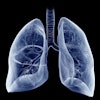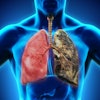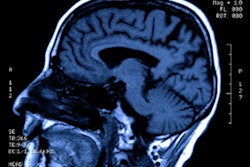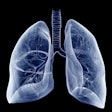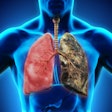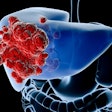
Wellness companies are marketing medical imaging scans directly to consumers as a way to assuage the "worried well" about their health. At the same time, internet-based services like Groupon enable consumers to leverage the power of volume for massive price discounts. Combine the two -- what could go wrong?
That question was explored by researchers from Massachusetts, who analyzed the sales and marketing practices of companies offering medical imaging services direct to consumers using Groupon. They published their study November 2 as a research letter in JAMA Internal Medicine.
A research team led by Sheena Desai noted that discounted direct to consumer (DTC) marketing raises both safety and ethical concerns and that it could lead to unnecessary downstream testing, incidental findings, radiation exposure, and other issues. Desai was at Brigham and Women's Hospital at the time of the study, and she is currently an MD/MBA candidate at Tufts University.
Desai et al therefore decided to evaluate several factors involved in imaging offering through Group, such as pricing, customer feedback, and marketing claims made by DTC imaging firms. In February 2020, they analyzed offerings on the "Imaging and Scans" section of Groupon to identify active discount vouchers, as well as performed Google searches using the keywords "Groupon medical scans."
The researchers found 84 companies in 27 states offering Groupon vouchers for 130 different types of imaging services. A total of 28,380 vouchers for imaging services had been sold through Groupon as of February 2020, with CT making up 41.3% of purchases. The average discounted price for scans ranged from $60 for a "body or biofeedback scan" to $687 for an MRI scan.
The group's analysis found that unsubstantiated claims were made by 45.2% of the companies offering Groupon vouchers. At the same time, only one company mentioned the possible risks of medical imaging. The discount amount offered through Groupon ranged from 94% for a combination of CT scans (discounted from $1,569 to $95) to a 34% discount for thermography studies (from $370 to $244).
The group also analyzed the reviews and comments made by consumers of the imaging services they had received. In all, 4.4% of comments suggested that companies tried to upsell them on purchasing additional imaging. Comments ranged from customers complaining about upselling tactics to those who were thankful for the scans, as they discovered previously undiagnosed pathology such as heart problems that later required interventions.
One consumer who received a prenatal ultrasound scan through Groupon said they were told the wrong gender of their fetus, a mistake they discovered through a visit to their ob/gyn physician a month later.
"Really thankful we didn't have a gender reveal party planned this time," the consumer opined.
Desai et al concluded by noting that while direct-to-consumer advertising using Groupon may lead to better transparency for consumers about the price of imaging scans, DTC ads for scans "may not accurately or adequately inform customers of the potential risks."
Groupon-initiated medical consultations with physicians who are unfamiliar with these patients are unlikely to provide unbiased and thoughtful guidance," they concluded. "Some patients' review comments suggested that the consultation may have been an extended sales pitch."
They recommended future studies of the appropriateness, accuracy, safety, and follow-up of direct-to-consumer imaging, and suggested that tighter regulation of medical advertising could be advisable to "reduce false claims and improve patient safety."
